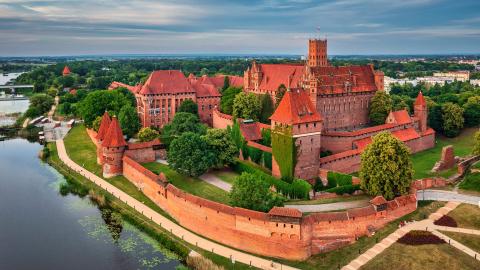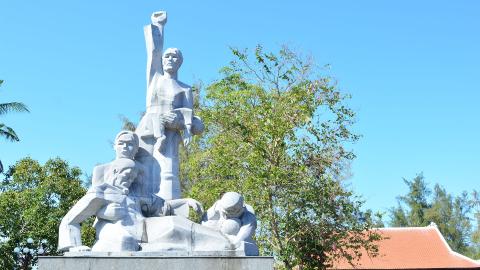Henry V
The son of Henry IV, Henry was born in 1387 and grew up in the care of his uncle, Henry Beaufort. He was knighted by Richard II in 1399 and created prince of Wales, when his father usurped the throne in the same year.
Henry was descended from John of Gaunt, the third son of Edward III, which was his claim to the throne. During his childhood, his father lived in exile and King Richard II took him into his own care in 1398, taking him to Ireland and knighting him in 1399.
When Henry's father usurped Richard, he became the prince of Wales and between 1400 and 1404 he carried out the duties of the High Sheriff of Cornwall.
With his father, and Sir Henry Percy, and later alone, he led armies against Owen Glendower in Wales, gaining valuable experience. In 1403 he joined forces with his father to fight Harry Hotspur at Shrewsbury. The 16-year-old prince was almost killed when an arrow became stuck in his face but he survived due to the good care he was given, such as honey being used as an antiseptic. Henry was left with permanent scars.
Henry and his friends dominated the privy council in 1410/11 when his father was ill. He favoured the Burgundians over the Armagnacs in France, in opposition to the king. A suggestion that he should succeed immediately to the throne led to his dismissal from the council, but he became king upon his father's death in 1413.
Upon accession, Henry dismissed the incumbent ministers, and made Henry Beaufort lord chancellor. A rebellion by the Lollards resulted in a strong parliamentary statute against the sect, but trouble continued until the execution of Sir John Oldcastle in 1417.
Determined to regain the lands in France held by his ancestors, Henry arranged a secret pact with Burgundy and prepared to attack France, thus reopening the Hundred Years War. His first invasion in 1415 captured Harfleur.
He defeated a superior French force in one of the most famous battles of English history, at Agincourt in 1415.
Henry continued his conquests and, in 1420, entered Paris, where he signed the Treaty of Troyes, agreeing to marry Catherine of Valois and to rule France in the name of her father, Charles VI.
The following year he returned with his wife to England. He made further military preparations, despite popular opposition to the continuation of war, and embarked on his third invasion of France.
Henry abandoned his early recklessness (celebrated and probably exaggerated by Shakespeare) and ruled with justice and industry. He fell ill and died in September 1422 from dysentery. He named his brother John Bolingbroke as protector of his son, who would become Henry VI but was just a few months old when his father died.
Henry features in three plays by William Shakespeare. In the two Henry IV plays, he is portrayed as a young scapegrace who redeems himself in battle and is then depicted as a brave leader in Henry V.
In 1989, a film adaption of this play was made starring Kenneth Branagh, who also directed the movie, as the king.















